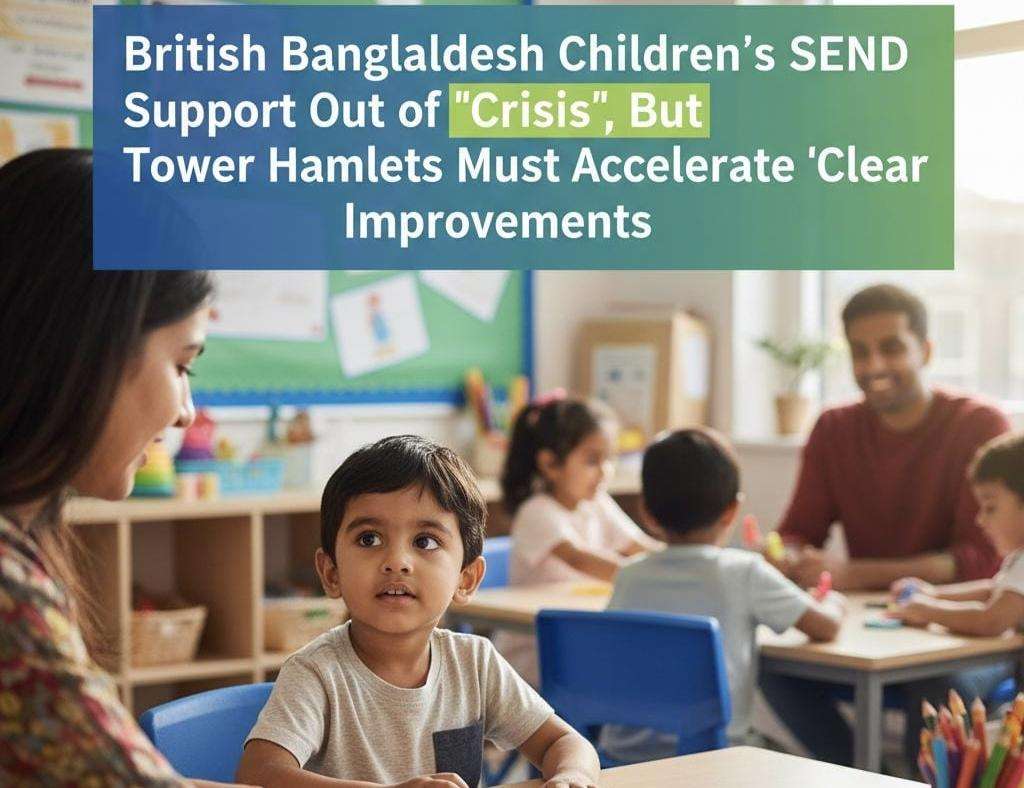A crucial battle is being fought in East London's schools, simultaneously tackling a national demographic decline and a need for improved support for its most vulnerable pupils. While recent national forecasts predict the equivalent of 800 primary schools across England could face closure by 2029 due to dramatically falling birthrates, the London Borough of Tower Hamlets—a key hub for the British Bangladeshi community—faces a unique, two-pronged challenge.
On one hand, this borough has historically maintained higher fertility rates, particularly within the British Bangladeshi population, which could offer a demographic buffer against the sharp decline in pupil numbers seen elsewhere in the capital. However, on the other hand, it must rapidly raise the standard of support for children with special educational needs and disabilities (SEND), a service which has only just managed to emerge from a state of "crisis."
SEND Services: Moving from Crisis to Improvement
Tower Hamlets Council, along with the NHS, delivers SEND services to a community with a high proportion of families of Bangladeshi heritage. Councillor Maium Talukdar, responsible for education, has publicly stated that the borough’s SEND services have transitioned from a state of "systematic failings" to one of "reforming and improving" following a recent Ofsted inspection.
The June inspection acknowledged the "many improvements" since a damning 2021 report, citing stronger leadership, better partnership working, and a greater willingness to hear families. However, inspectors delivered a finding that the overall experiences of children and young people remain "inconsistent," indicating that while the crisis is over, "clear areas where further improvement is needed" persist.
A major focus remains on Education, Health and Care Plans (EHCPs). While the quality of these crucial legal documents is improving, and more are now issued within the legal timeframe, a significant backlog of poor or outdated plans remains. The inspection highlighted that some EHCPs are "significantly out of date" and lack accurate information regarding health and care provision, directly impacting the quality of support delivered to a diverse student body, which includes a large number of British Bangladeshi families.
Parent Governor Joanna Hannan affirmed a "marked improvement in how quickly" EHCPs are being completed, confirming that new tracking systems are helping to ensure timely reviews by education providers. Yet, the challenge remains for the Council to ensure these improvements are consistent across all services.
The South Asian Demographic Pressure
The situation is compounded by the larger, national educational headwinds. The national decline in primary pupil numbers, driven by a national TFR of around 1.44, puts intense financial pressure on all schools. School funding is tied directly to pupil numbers, and even a modest fall can threaten viability.
For Tower Hamlets, the continued demographic strength of the British Bangladeshi community—which has a historically higher fertility rate compared to the UK average and many other ethnic groups, including British Indian—is a crucial factor. This high birthrate provides a degree of insulation from the worst of the national pupil decline.
The twin challenge for the Council is to manage its school capacity to reflect the slow decline (or potential stability) in pupil numbers driven by local demographics, while simultaneously allocating sufficient resources to a rapidly improving, but still inconsistent, SEND service. Effective planning must address the needs of the British Bangladeshi population, whose high proportion in the borough means their specific educational and social needs are integral to the success of the entire system. Without robust and consistent SEND services, even localised demographic resilience cannot guarantee a high-quality education for all children.







.svg)

